From: Jennifer Kolari
To: Moms and Dads
Dear parent,
What does it take to be a loving parent…
Who can deal with screaming matches, never-ending negotiations, tantrums, and meltdowns in a positive way…
While getting your kids to listen and cooperate without defiance?
If you’ve ever wondered why other parents have it so easy and why they go along with their kids so well…
It’s not a matter of your child’s temperament, whether they have ADHD, or how many times you’ve “lost it” with your kids before.
It all comes down to following 2 guiding principles, which I’ll explain in a moment.
You See, I Always Wanted To Parent From A Place Of Love, Not Fear
I wanted to be able to have a loving relationship with my kids without them walking all over me.
I wanted to become a mother who is as stable as a rock in her children's presence.
A mother they can trust, respect, and listen without arguments.
A mother who can deal with their bad behavior in a calm and loving manner – no matter the circumstances.
But When I First Started Working With Kids As A Therapist, The Reality Was “Anything But”
When I tried therapy techniques that I learned during my training, they backfired with kids who were more challenging, strong-willed, and spirited…
I call these kids “gladiator” kids.
These are the kids who don’t give up easily.
It has to be their way or the highway.
When they don’t get what they want, they become upset.
They often become rude and angry.
After years of trying textbooks, courses, and other parenting methods...
Getting frustrated...
Not getting to where I wanted to go...
And nearly giving up…
I Realized There Was Something "Missing"
That Left Me With "Holes And Gaps" In My
Parenting: "Pieces" But Not The Whole Puzzle
Eventually, with the help of my supervisor I was able to put it all together…
And today, after 30 years of therapy practice and raising my own 3 wonderful kids…
And after helping over 131,000 parents and kids go from broken relationships to deep connection, from kids defying to listening, from rude teenagers to warm sons and daughters…
All to have a calm home filled with kind communication and close relationships…
I found that…
At The Very Basis Of Parenting Is Communication
And the problem is, when our kids are talking, we’re usually “listening” at one of four levels:

Level 1: We may be ignoring our kids, not really listening at all.
We don’t ignore our kids intentionally. It just happens. For example, during car rides when we’re focused on driving.
Or when our kids are arguing and fighting and we're exhausted, we might let them figure it out on their own.
And when children’s words land on empty ears, they think, “Oh what’s even the point.”
They close in, not letting you in their world.

Level 2: We may practice pretending.
When we’re chatting with our friend while our child wants to tell us something, we might reply with:
“Yeah. Uh-huh. Right.”
And then we get frustrated when they throw a tantrum to get our attention.

Level 3: Sometimes we listen selectively.
This happens when we’re hearing only certain parts of the conversation.
We often do this when we’re listening to the constant chatter of a preschool child.

Level 4: Most often, we’re practicing active listening.
This is when we feel like we’re truly listening.
We pay attention and focus our energy on the words that are being said.
But we’re not connecting on a deeper level.
Kids tend to see through us when we listen actively.
We come off as disingenuous – as if we’re trying to manipulate them to do our bidding.
When this happens, they become defensive. They don’t listen to what we say. They defy our instructions. Their meltdowns get stronger.
But Very Few Of Us Ever Practice The Fifth Level, The Highest Form Of Listening: Empathic Listening
Empathic listening allows you to see the world the way your child sees it.
You understand how they feel.
And, most importantly, you understand the reason behind their behavior and actions.
Empathic listening involves much more than registering, reflecting, or even understanding the words that are said.
It’s so powerful because it gives you accurate information to work with.
Instead of projecting your own beliefs and assuming thoughts, feelings, motives, and interpretations…
…You’re dealing with the reality inside your child’s mind and heart.
It is at this point that you form a deep connection with your child.
And it is at this point where you can effectively correct their behavior in a loving way.
Best of all, once you practice empathic listening, your kids will often recognize the problem and correct their behavior on their own.
When You Listen With Empathy To Your Child, You Give Them Emotional Safety
There are two primary needs that children need: physical and emotional safety.
You provide physical safety by making sure your child is not hungry or thirsty. By giving them warm clothes to wear, and a roof to live under.
But physical safety is only one part of the equation.
For a child to truly feel safe, they also need emotional safety – to be understood, to be affirmed, to be validated, to be appreciated.
When you listen with empathy to your child, you give them emotional safety.
When your child feels safe, they trust you. Your bond grows stronger, and they’re happy to seek your guidance.
…Then Correct Behavior
After you provide emotional safety to your kids, you can then focus on setting limits and correcting behavior.
Because you connected with your child on an emotional level first, they’re now open to listen to you – even if they’re upset.
Because you truly understand what’s going on underneath their behavior, you are able to guide them toward better decisions.
You can address what’s upsetting them because you listen to what your child is showing you with their actions but not telling you with their words.
When your child understands that you’re always coming from a place of deep love and security, it changes everything.


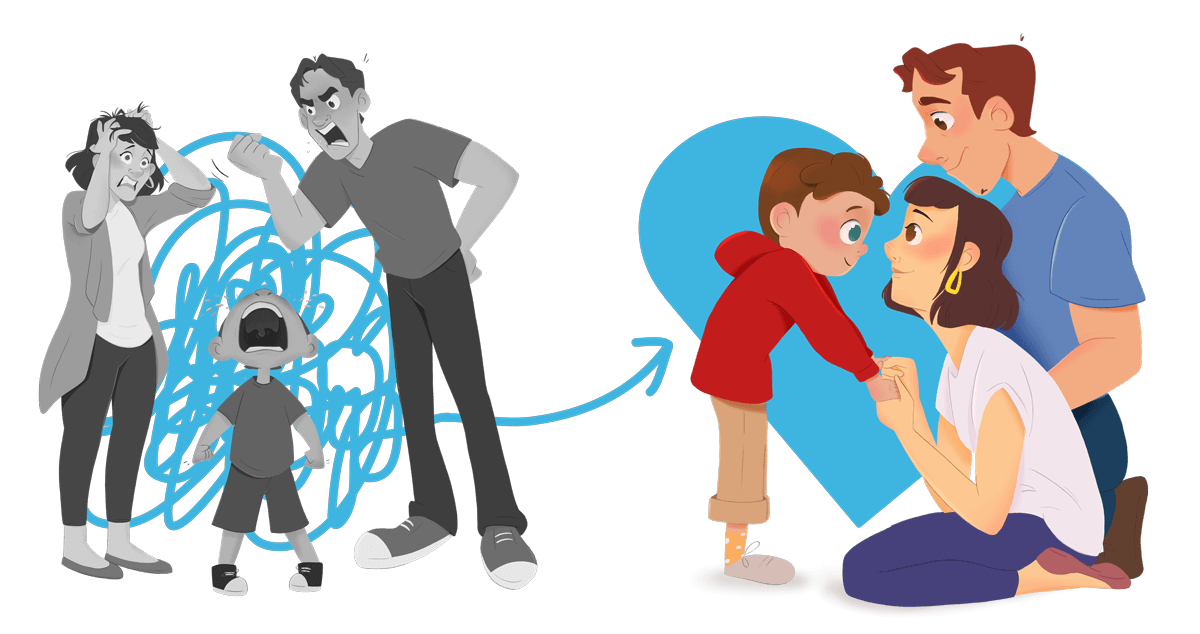
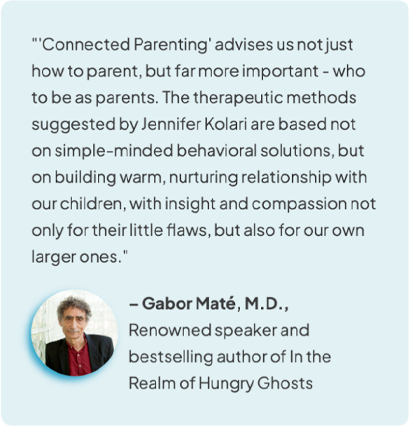
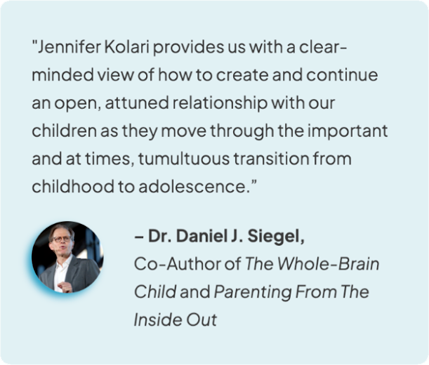

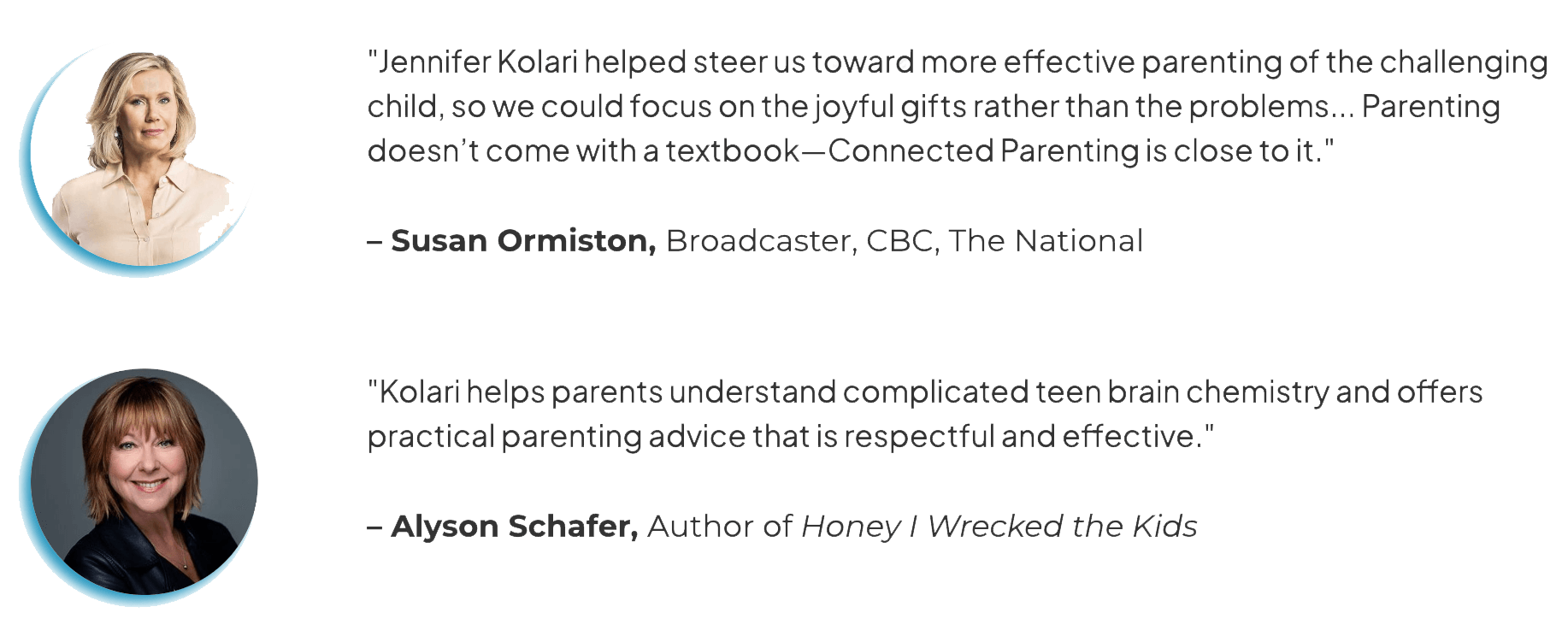

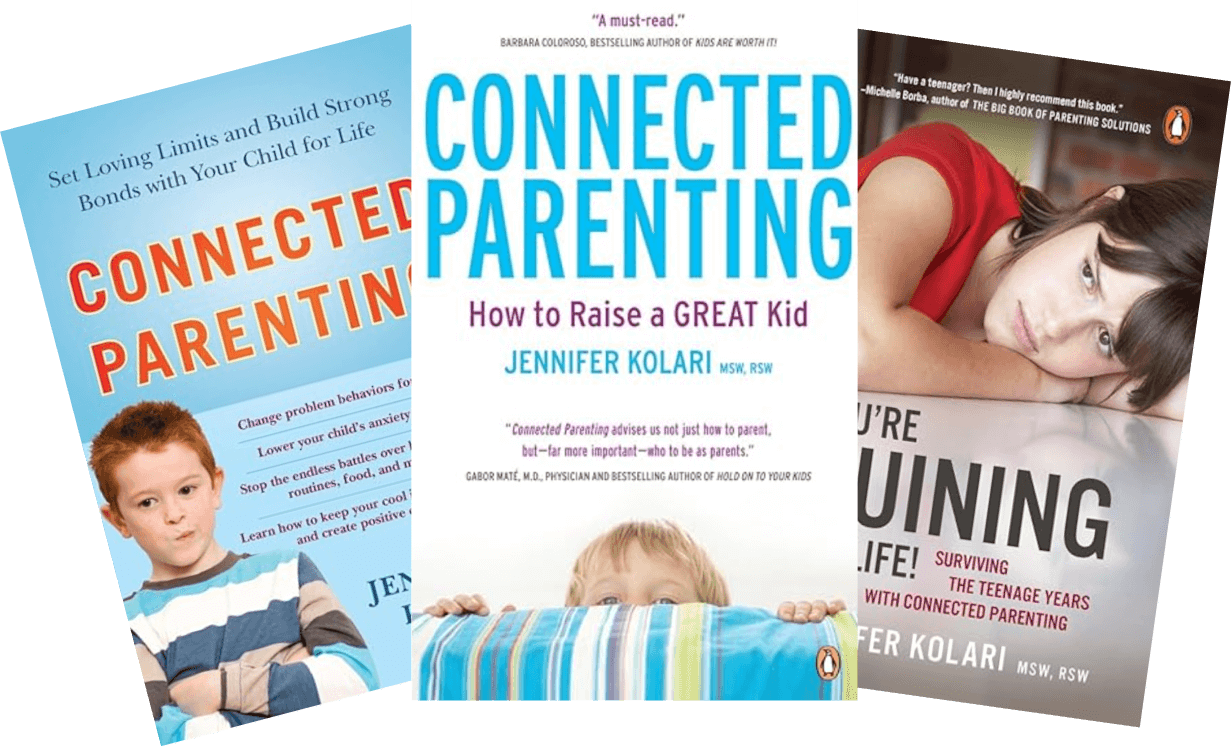
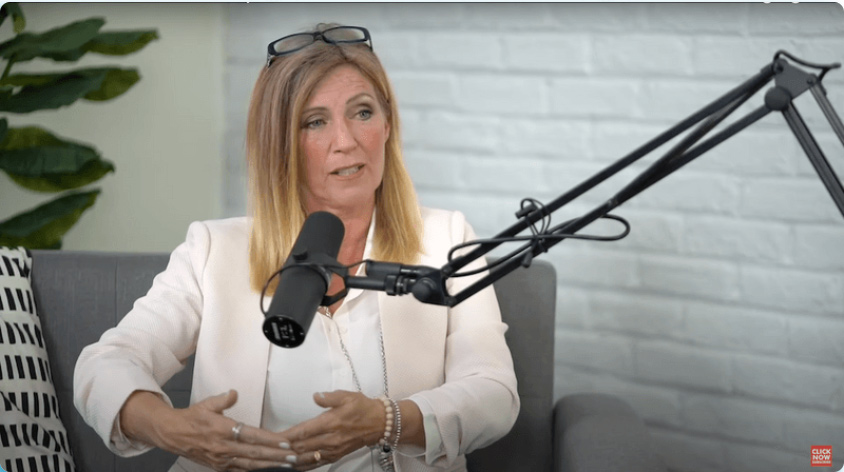
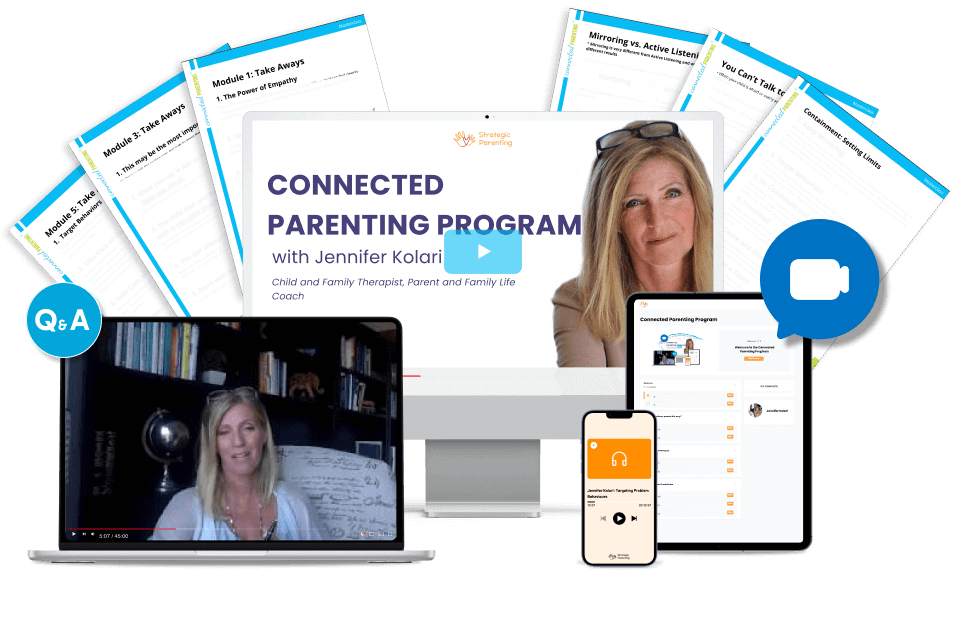
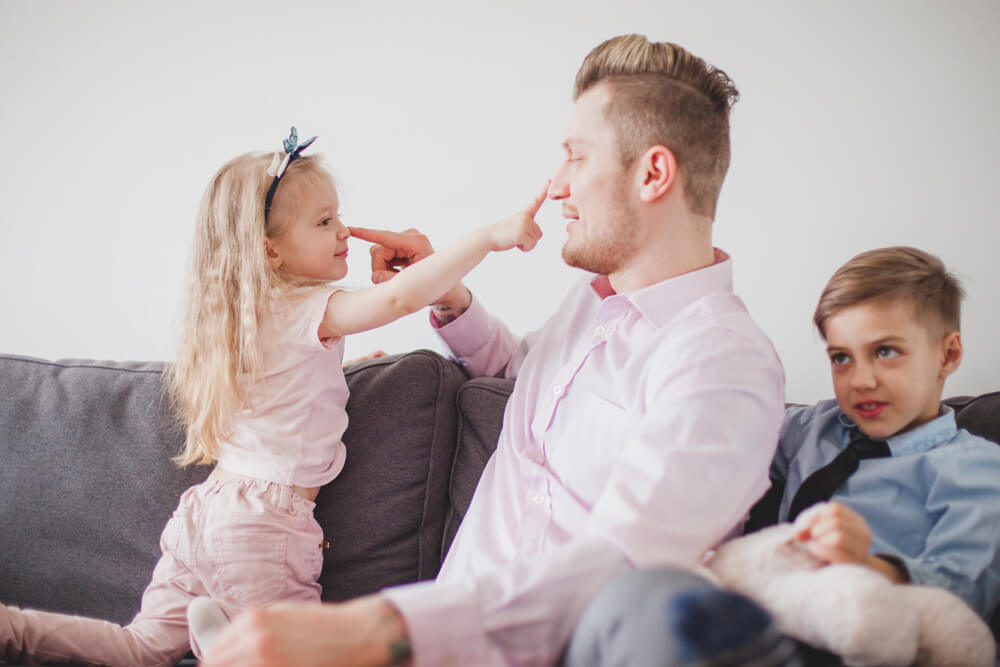
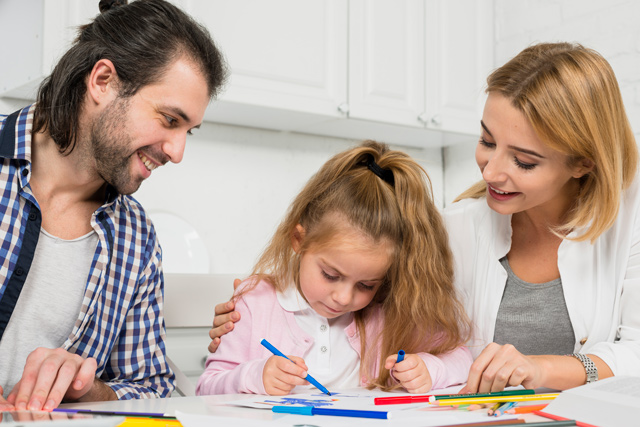






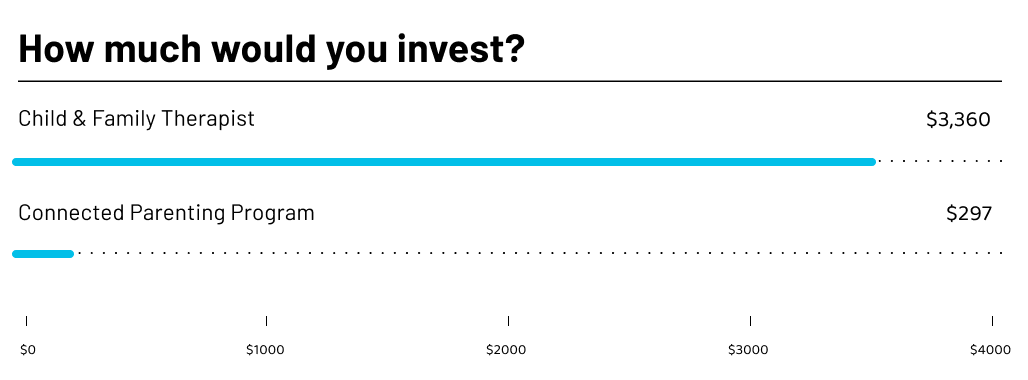











































“We felt we had tried every parenting technique in the world and nothing seemed to make a difference in helping us and our son cope with the difficult behaviors he has because of ADHD.
It felt like there was no light at the end of the tunnel. Then we found Connected Parenting. These strategies were crucial to rebuilding the bonds of trust and respect that the challenging behaviors had eroded.”
– Michael, Father of Two